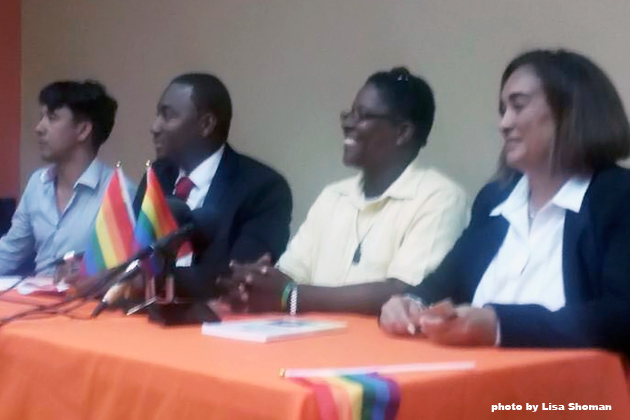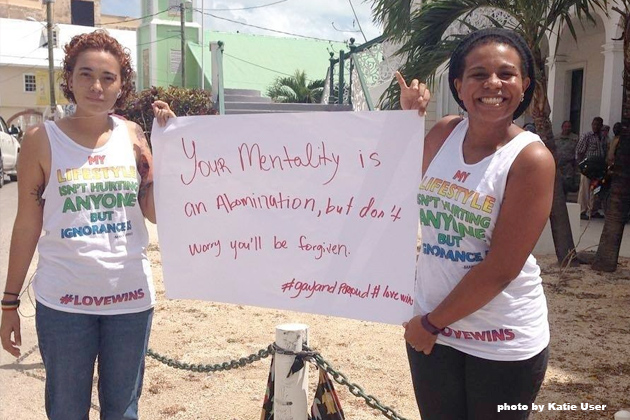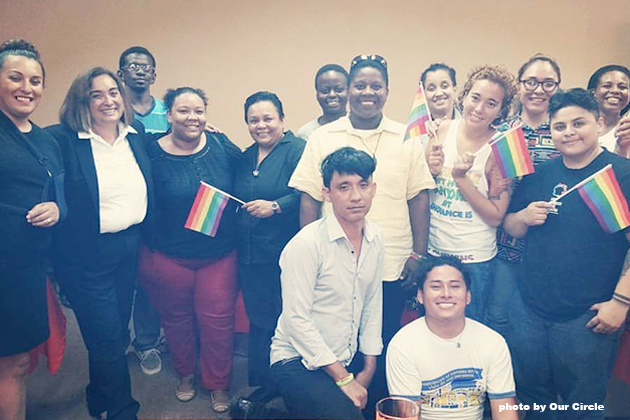On August 10, 2016, the Belize Supreme Court made a historic ruling in favor of gay activist Caleb Orozco, and has struck down the country’s anti-sodomy law. This is the first case launched in the Caribbean and the first case where the sodomy laws have been overturned.
The case was brought to court in 2010, heard in 2013 and the ruling came on August 10, 2016. The long process has been spearheaded by Caribbean allies, activists, advocates, academics, and legal experts. Orozco challenged the law claiming that it infringes on the ‘Protections of the Fundamental Rights and Freedoms’ of the individual guaranteed by Belize’s constitution.
Chief Justice Kenneth Benjamin, presiding over the court, accepted Orozco’s challenges on all counts, including:
- The law is a violation of the rights to dignity, privacy, equality and non-discrimination on grounds of sex;
- There is no public morality justification;
- International legal obligations must be complied with;
- The law must be modified;
- The costs were awarded to the claimant;
Section 53 of the Criminal Code will be amended to exclude penalty of sexual acts between two consenting adults of the same gender.
“The decision today is deeply fulfilling, I am elated for myself, but more so for all of LGBTIQ people in Belize. The Supreme Court set a historic precedent in the country, and in the Caribbean more widely, by upholding the dignity and equality of all citizens regardless of their sexual orientation. Though I know much has yet to be done to change attitudes in my country, this is a momentous step, and I could not be more proud,” said Orozco, in response to the ruling.

In the groundbreaking decision, the court also extended its positive ruling to declare that the definition of “sex” in Section 16 (3) of the Constitution, outlining anti-discrimination, also includes sexual orientation.
“We are hopeful that this will contribute to a shift in the Caribbean as a whole, where 10 countries still have remnants of colonial sodomy laws. But the laws are only part of what needs to change. We need a stronger movement across the region that can push for a change in societal attitudes. This historic win will push us forward!” Stated Kenita Placide, Caribbean Advisor of OutRight Action International.
Orozco, who serves as Executive Director of the United Belize Advocacy Movement (UNIBAM), challenged Section 53 of the 1981 Criminal Code of Belize claiming it to be unconstitutional, and violating his right to human dignity, privacy, equality before the law, and freedom of expression. Section 53 states that ‘every person who has carnal intercourse against the order of nature with any person or animal shall be liable to imprisonment for ten years.’ While the exact definition of ‘carnal intercourse against the order of nature’ is unclear, is has been interpreted to encompass anal sex between two men or between a man and a woman, regardless of consent. Notably, Section 53 of the Criminal Code is a remnant of Belize’s colonial past. The code was amended in 1944, before that time only non-consensual sex between two persons of the same sex was criminalized.

Although the law was seldom enforced, is has been argued that the simple presence of the law has contributed to harmful effects in broader society and fed into the homophobic rhetoric of the Church. Belize is a country where the highly religious public is openly hostile towards LGBTIQ people, and social stigma and animosity against the community is high. The Roman Catholic Church of Belize, the Belize Church of England Corporate Body, and the Belize Evangelical Association of Churches were all interested parties in the litigation and rallied against Orozco’s challenge.
Since filing the case Orozco has been subject to even greater public humiliation, threats, and bodily harm, including bean beaten over the head with a metal rod and having his teeth broken. The word “Orozco” has even been added to the list of homophobic slurs yelled at gay men on the streets.
Despite the personal attacks, Orozco recognizes the importance that the case has carried for the LGBTIQ society in Belize.
“Taking the case to court was a call to action for the LGBTIQ community in Belize and beyond. The community started coming together and organizing, recognizing that standing in silence and allowing injustices to prevail could no longer be the norm. We had support from so many people from within the country and internationally; this victory is all of ours to share. We have won in so many ways; we are stronger than ever before, but we are nowhere near done,” Orozco added.
The decision is a landmark moment in Belizean history, and for the Caribbean, and signifies a commitment from the government to protect the privacy and rights of LGBTIQ Belizeans. However, much work has yet to be done to ensure that society follows suit and that discrimination against LGBTIQ people diminishes.
According to Maria Sjodin, Deputy Executive Director of OutRight Action International, this challenge extends beyond the borders of Belize. She states,
“The court ruling in Belize means that the number of countries that criminalize same-sex behavior is now down to 72, and hopefully this downward trend can continue. But it is important to remember that laws are only part of what impacts people’s lives – the fight to change societies must continue worldwide and this can only happen with strong LGBTIQ movements.”











